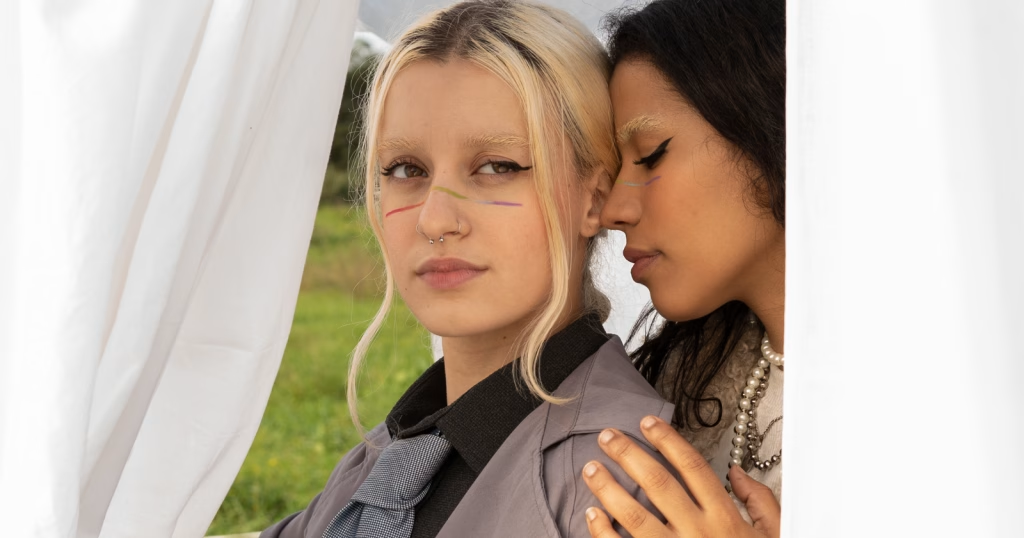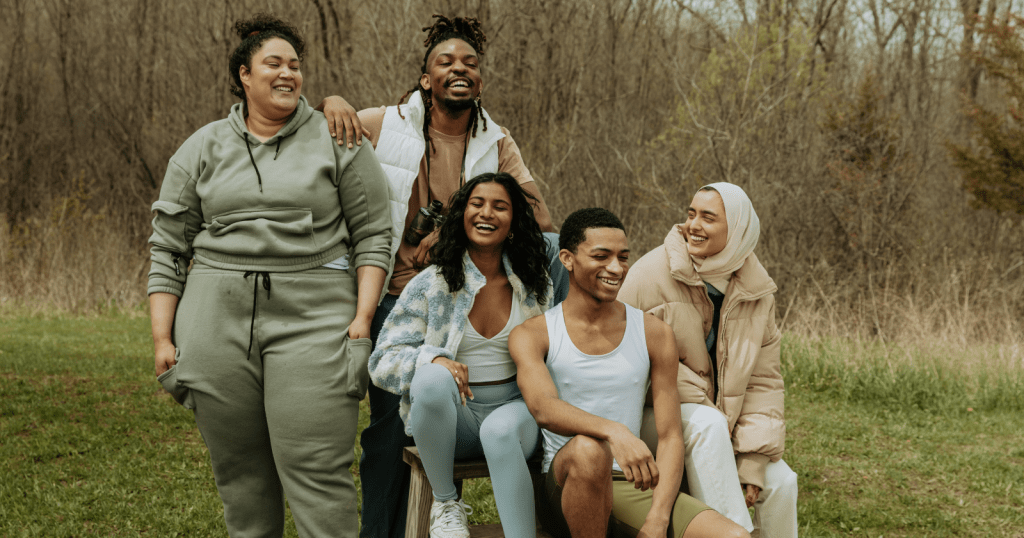Navigating the complexities of relationships is challenging for anyone, but lesbian and gay couples often face unique obstacles that can test even the strongest partnerships.
From societal pressures to personal insecurities, these challenges can seem daunting.
As someone deeply invested in promoting sexual and gender equality, I’ve witnessed firsthand the resilience and courage required to overcome these hurdles.
While progress has been made in recent years, ingrained societal norms and prejudices still pose significant difficulties. It’s essential to address these issues head-on, offering practical solutions and support to help couples thrive.
This article delves into the top ten challenges faced by lesbian and gay couples and provides insights and strategies for overcoming them.
1) Societal acceptance and stereotypes
One of the most pervasive issues lesbian and gay couples encounter is the lingering societal stereotypes.
Despite greater visibility and acceptance, stereotypes about roles, behavior, and expectations persist. These can manifest in subtle ways, such as assumptions about who is the ‘man’ or ‘woman’ in the relationship.
This type of stereotyping can create internal conflict and external pressure. It’s crucial to challenge these norms by embracing your unique relationship dynamics.
Open communication about roles and expectations can fortify your bond, helping you resist external judgments. I remember a couple I worked with who faced constant pressure to conform to traditional gender roles.
Through open dialogue and self-reflection, they redefined their relationship on their terms, which strengthened their connection.
2) Family acceptance and pressure
Family can be a source of immense support or significant stress for lesbian and gay couples. Coming out to family members can be a daunting task, and not all families are immediately accepting.
This lack of acceptance can strain relationships, leading to feelings of isolation. It’s important to approach these conversations with patience and understanding, recognizing that acceptance may take time.
Building a supportive network of friends and allies can provide the emotional bolstering needed during this process.
I recall a personal experience where a couple faced initial rejection from family.
Over time, through consistent communication and education, they were able to rebuild those connections, bridging the gap between personal happiness and familial expectations.
3) Legal and financial challenges
While marriage equality has been legalized in many places, lesbian and gay couples still face legal and financial hurdles.
From adoption rights to tax implications, navigating these issues requires careful planning and understanding.
It’s beneficial to consult with legal professionals who specialize in LGBTQ+ issues to ensure you’re aware of your rights and responsibilities.
Creating a financial plan that considers these unique challenges can also provide peace of mind.
For instance, a couple I know successfully adopted a child after meticulous research and legal consultation, proving that persistence and knowledge are key.
4) Public displays of affection and safety
Even in 2025 on some countries, public displays of affection (PDA) can be fraught with tension for lesbian and gay couples.
Fear of harassment or negative reactions can dampen the joy of simply holding hands in public.
It’s essential to weigh the desire for open affection with personal safety. Choosing LGBTQ+-friendly spaces can mitigate these fears, providing a safe environment to express love openly.
During a trip with my partner, I found that planning visits to inclusive cities or forums made a significant difference in our comfort levels.
For those looking to enhance their travel experience, the Damron Men’s Travel Guide is a fantastic resource for identifying welcoming destinations and establishments.
5) Internalized homophobia and self-acceptance
It struck me how internalized homophobia can be a silent but powerful adversary in relationships.
Growing up in a society that often marginalizes LGBTQ+ identities, many individuals internalize negative beliefs about themselves.
This can lead to self-doubt and insecurity within a relationship. It’s vital to engage in self-reflection and seek counseling or support groups that specialize in LGBTQ+ issues.
Embracing your identity fully can pave the way for a healthier, more fulfilling relationship.
Confronting and overcoming internalized biases is a feat anybody who’s determined can succeed, leading to a more confident and authentic self.
6) Miscommunication and relationship dynamics

We’ve all experienced this: miscommunication is a common relationship pitfall, but it can be exacerbated by the unique dynamics of lesbian and gay relationships.
Understanding and respecting each other’s communication styles and emotional needs are crucial.
Regular, honest conversations about feelings and expectations can prevent misunderstandings.
You can begin holding weekly ‘check-in’ sessions, where you can openly discuss your week’s highs and lows. This practice improved their communication and strengthened their relationship.
7) Managing external criticism and negativity
Unfortunately, criticism and negativity from external sources can impact lesbian and gay couples.
Whether it’s derogatory comments or unsupportive acquaintances, such negativity can strain a relationship.
Here’s what you need to know.
Building resilience against these external forces involves fostering a strong internal bond and support system. Surrounding yourselves with positivity and allies can diminish the impact of hurtful remarks.
You can choose to limit your exposure to unsupportive individuals, creating a more positive and nurturing environment for your relationship.
Isn’t that what we all hope for?
8) Balancing individuality and partnership
Maintaining individuality while nurturing a partnership is a delicate balance. Lesbian and gay couples may feel additional pressure to conform to societal expectations, leading to a loss of self.
It’s important to pursue personal interests and growth while supporting your partner’s endeavors. Having hobbies or activities independent of the relationship can enrich your life and provide fresh perspectives to share with your partner.
A friend of mine found that joining a community sports team allowed her to maintain a sense of self, which positively influenced her relationship.
It’s important to note that you’re still you even with a partner you trust and love, balance is the key.
As noted psychologist Dr. Brené Brown once said, “Daring to set boundaries is about having the courage to love ourselves, even when we risk disappointing others.”
9) Dealing with past relationship baggage
Past relationship experiences can heavily influence current dynamics.
For lesbian and gay couples, previous encounters with discrimination or heartbreak might cast a shadow on new relationships.
It’s essential to address these past issues through open dialogue and, if necessary, professional counseling.
Understanding each other’s histories fosters empathy and patience. Let me stress out that sharing your past experiences can bring you and your partner closer, as you can learn to navigate future challenges together.
10) Navigating cultural and religious beliefs
Cultural and religious beliefs can present significant challenges, especially if they conflict with a partner’s identity or relationship.
Finding a balance between personal beliefs and a loving partnership requires open-mindedness and compromise.
Engaging in interfaith or intercultural dialogues can bridge gaps and foster mutual respect.
Through exploring each other’s cultural backgrounds, you can deepen your understanding and appreciation for one another.
Love in all colors
Relationships, no matter their structure, are built on love, understanding, and shared commitment.
For lesbian and gay couples, the journey often involves unique challenges that require courage, empathy, and a deep belief in the strength of their bond.
While societal pressures, communication hurdles, or internal conflicts may arise, each obstacle offers an opportunity to grow closer, support one another, and affirm the love you’ve built together.
As author bell hooks beautifully said, “Love is an act of will—namely, both an intention and an action.”
Overcoming challenges isn’t about perfection but about choosing each other daily, even in the face of adversity. It’s about creating a safe space where both partners feel seen, heard, and cherished, regardless of the world’s expectations.
Every relationship has its trials, but what truly matters is the dedication to weather them as a team.
With open hearts, honest communication, and unwavering support, lesbian and gay couples can not only overcome challenges but emerge stronger, more connected, and deeply rooted in love.

Alexandra Rivera is a passionate educator and advocate with over a decade of experience championing sexual and gender equality. With a background in sociology and gender studies, Alexandra has dedicated her work to promoting inclusivity, understanding, and empowerment for individuals of all identities. Through education, storytelling, and advocacy, she strives to break down stigmas and foster a world where everyone feels seen, respected, and celebrated. She is also a self-proclaimed artist channeling her creative side on pottery and sketching.




